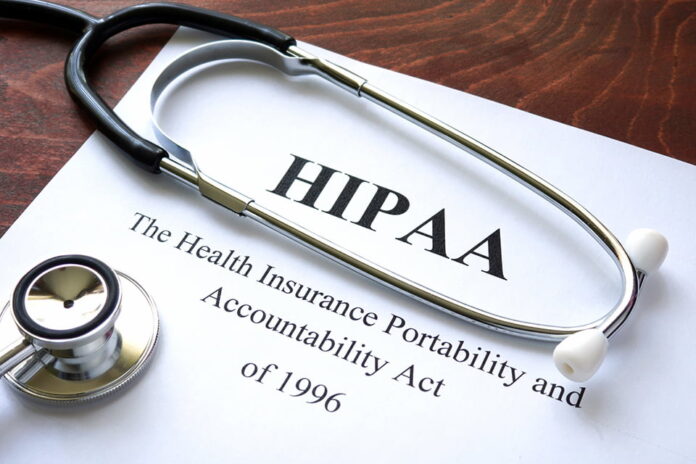The Health Insurance Portability and Accountability Act, or HIPAA, ensures the confidentiality and security of protected health information (PHI). If you are a healthcare provider or manage any kind of health-related business, then you must be HIPAA compliant. To become HIPAA compliant, you must take a few key steps.

First, all of your employees must receive up-to-date, comprehensive training on the regulations set forth by the HIPAA Security Rule and the Privacy Rule.
This includes not only understanding what is expected of them in protecting PHI but also how to handle a breach and what to do if they suspect one has occurred.
You can visit compliancy-group.com to automate the HIPAA compliance process. This guide will walk you through all the steps necessary for becoming HIPAA compliant.
Understanding What HIPAA Is and Why It Matters
HIPAA is a federal law that sets standards for protecting sensitive patient data. These standards include physical, technical, and administrative safeguards to secure electronic PHI (ePHI).
In addition to protecting patient data from unauthorized access or disclosure, it also prevents healthcare organizations from using PHI in marketing without the patient’s consent.
Becoming HIPAA compliant is essential for any organization that handles PHI as it helps protect patients’ privacy and keeps their data secure.
Performing a Risk Analysis
The first step in becoming HIPAA compliant is performing a risk analysis. This involves assessing your current systems and procedures to determine where your organization might be vulnerable to a breach of ePHI.
You should evaluate each system used to store or transmit ePHI and any third-party vendors you use to handle this information. Once you have identified any areas of vulnerability, you can begin to work on resolving them.
Creating Policies and Procedures
Once you have completed the risk analysis process, it’s time to create policies and procedures that ensure your organization remains compliant with HIPAA regulations going forward.
This includes creating a policy manual outlining how to handle ePHI properly across all departments within your organization and establishing protocols for responding in the event of a breach.
It’s also important that these policies are clearly communicated to all employees within your organization so they understand what is expected of them when handling ePHI on behalf of the company.
Establishing Ongoing Compliance
It’s important to remain vigilant in your efforts to stay HIPAA compliant. This means regularly conducting internal audits and risk assessments, updating policies and procedures as needed, and adding or revising security systems when necessary.
Additionally, it is important that all employees receive regular training on new regulations, processes, and procedures.
Training Your Employees on HIPAA Regulations

Employee training is an integral part of ensuring compliance with HIPAA regulations. All employees who interact with patient data must receive training on proper handling techniques to recognize potential breaches before they occur.
Training should be provided regularly, so new hires are aware of their responsibilities when working with PHI while existing employees remain up-to-date on any changes in regulations or best practices related to handling this type of sensitive information securely.
Final Thoughts
By following these steps understanding what HIPAA is and why it matters, performing a thorough risk analysis, creating policies and procedures for maintaining compliance going forward, and training employees on those policies, you can ensure your organization meets all requirements for being listed as an official “HIPAA Compliant” entity.
Taking these measures will help protect patients’ data from unauthorized access or disclosure while also helping prevent identity theft due to lost or stolen healthcare records.
Demonstrating that your organization meets all applicable requirements will give current and prospective customers peace of mind knowing that their private information is safe with you.
Read Also
- Transforming Patient Care with Professional Healthcare Transcription ServicesIn today’s fast-paced healthcare environment, the need for precise and timely documentation cannot be overstated. Accurate documentation is not merely an ancillary task; it is a core element of delivering high-quality patient care. The ability to maintain compliance with regulations, enhance operational efficiency, and ensure the integrity of patient records has never been more critical.… Read more: Transforming Patient Care with Professional Healthcare Transcription Services
- Essential Steps to Launch Your Own Optometry PracticeLaunching your own optometry practice can be a thrilling and fulfilling journey. However, it requires careful planning, dedication, and an understanding of what it takes to succeed. With the growth in demand for eye care, more and more individuals are seeking to start their own practices. But how do you get there? This guide walks… Read more: Essential Steps to Launch Your Own Optometry Practice
- Compounding Pharmacy: Personalized Medication SolutionsA compounding pharmacy plays a vital role in modern healthcare by providing customized medications tailored to the specific needs of individual patients. Unlike mass-produced drugs manufactured by pharmaceutical companies, compounded medications are prepared by licensed pharmacists who carefully combine, adjust, or modify ingredients to create a formulation that best suits a patient’s unique medical requirements.… Read more: Compounding Pharmacy: Personalized Medication Solutions
- The Best Business Decision a Surgeon Ever Made: Ordering a Medical Equipment AppraisalMost surgeons don’t go into medicine because they love spreadsheets, valuations, or negotiating buy-ins. They go into medicine because they want to operate, treat patients, and build something meaningful over time. For one surgeon, that mindset worked perfectly, until the day another surgeon decided to buy into his practice. That moment exposed a problem he… Read more: The Best Business Decision a Surgeon Ever Made: Ordering a Medical Equipment Appraisal
- Creative Approaches to Alleviating Healthcare Staff ShortagesHospitals and clinics are facing staff shortages, which makes it harder to take care of patients well. Finding simple and useful solutions is very important. Easy changes like flexible work hours, good training, and chances to grow can help staff stay happy. Technology, like online doctor visits and helpful tools, can make work easier. Smart… Read more: Creative Approaches to Alleviating Healthcare Staff Shortages






